Five Key Takeaways for Founders from the AI Strategies of Salesforce, ServiceNow, and Workday
While investors and founders are buzzing about startups revolutionizing the world with AI agents, it's worth turning our attention to what some of the "boring" established SaaS companies have been up to this summer. After spending considerable time watching keynotes from recent conferences held by Salesforce, ServiceNow, and Workday—and delving into their latest product announcements—I've distilled five key takeaways from their AI strategies that enterprises should note.
1. AI Agents Will Become Ubiquitous in the Enterprise
All three companies dedicated the majority of their keynotes to discussing AI agents—whether task-specific, function-specific, or domain-specific. This focus is significant for startups pondering how to overcome enterprise hesitance toward AI agents.
Screenshot below of Salesforce's most notable announcement, AgentForce, signaling a major push to integrate AI agents deeply into their platform.
2. Conversational Interfaces with SaaS Apps Will Become the Norm
Forget about chatting only with your PDFs or cloud storage like Google Drive and Box. Soon, you'll be able to interact conversationally with every app you use. For example, ServiceNow showcased a user asking for their deductible and receiving a response gleaned directly from a Microsoft SharePoint document. Who said you absolutely had to have something like Glean in order to do this?!
3. Customizing SaaS Apps Will Be Easier and Require Less Effort
Customization—often seen as a daunting task—is getting a makeover. Salesforce introduced an Agent Studio that allows users to create custom apps or agents using natural language. Whether it truly employs AI agents isn't the main point; the exciting part is that text-to-code technology has become quite mature that customizations may no longer require System Integrators (SIs) or even developers. This shift empowers end-users, giving them more control than ever before.
Below is a screenshot of Salesforce’s AgentStudio:
ServiceNow made a similar announcement, emphasizing tools that make customization more accessible and less resource-intensive.
4. DIY AI Is SaaS Vendors' Public Enemy Number One
If there were a Nobel Prize for PowerPoint slides, Salesforce would be a top contender. Marc Benioff didn't mince words when he identified "DIY AI" as the primary competitor. This stance highlights a strategic effort by SaaS vendors to keep customers within their ecosystems and discourage them from building their own AI solutions.
Workday took a subtler approach, encouraging customers to adopt their AI offerings over DIY solutions. It's another move toward vendor lock-in—which, of course, means ka-ching!
5. Many CXOs Will Fulfill Their Generative AI Mandates Through Existing SaaS Vendors by 2025
The world has been in a massive prototyping phase with generative AI over the past two years. Many have realized that moving from prototypes to production requires more of everything—budget, personnel, processes, tooling, and more. Does this mean DIY AI is dying? Not at all.
According to a McKinsey survey of CXOs, with half of them customizing models, there's still plenty of DIY prototyping and productizing happening.
I'll share my thoughts on the future of DIY AI in an upcoming post.
Conclusion
Established SaaS companies like Salesforce, ServiceNow, and Workday are making significant strides in integrating AI into their platforms. Their strategies indicate that AI agents and conversational interfaces will become standard features in enterprise software. They are also lowering the barriers to customization, empowering end-users, and positioning themselves against DIY AI solutions.
For enterprises, this means that fulfilling generative AI mandates might be as simple as leveraging existing relationships with SaaS vendors. However, the DIY route remains viable and is still being actively explored by many organizations.
Stay tuned for my next post, where I'll dive deeper into the implications of DIY AI in the enterprise landscape.


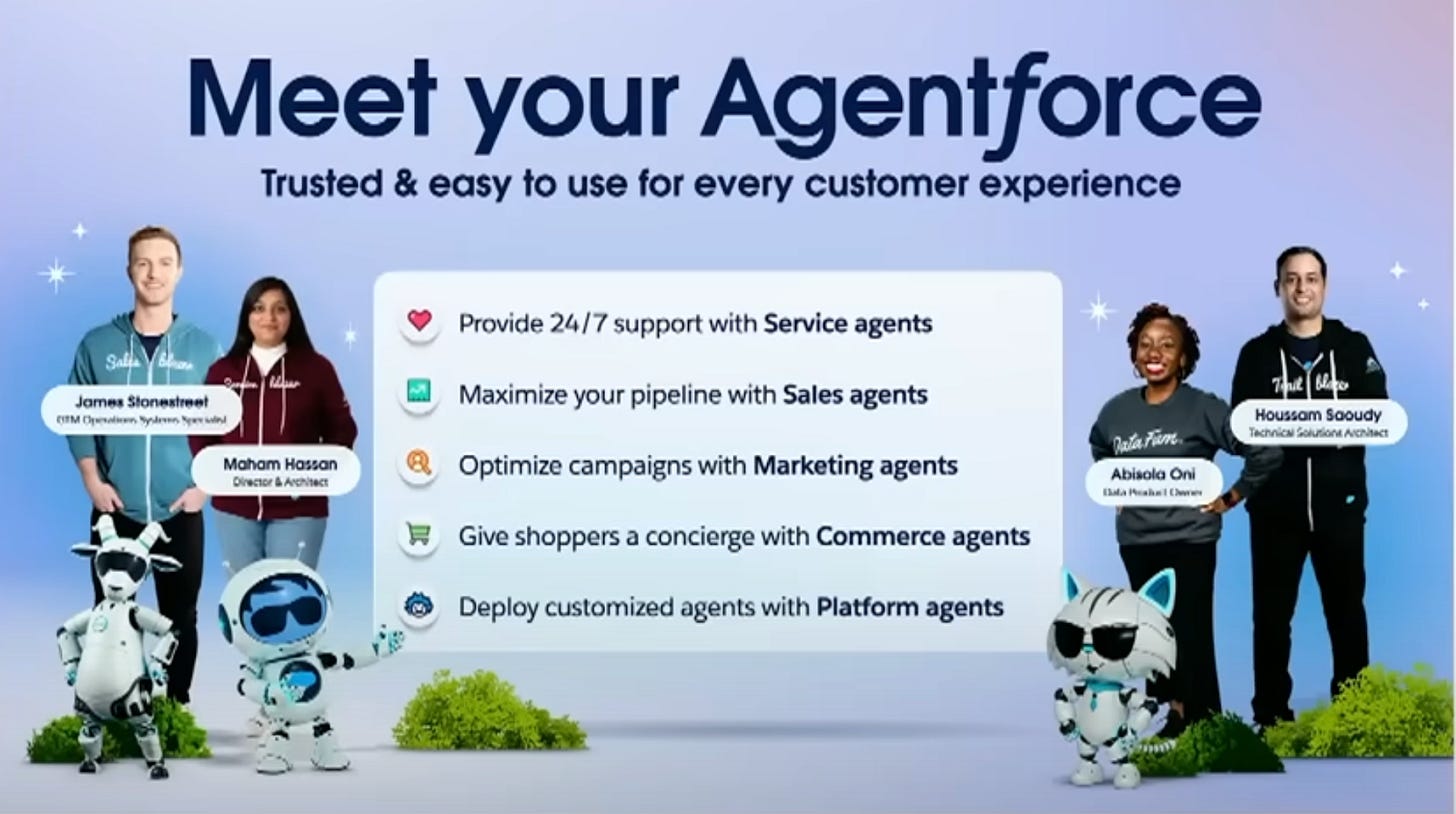
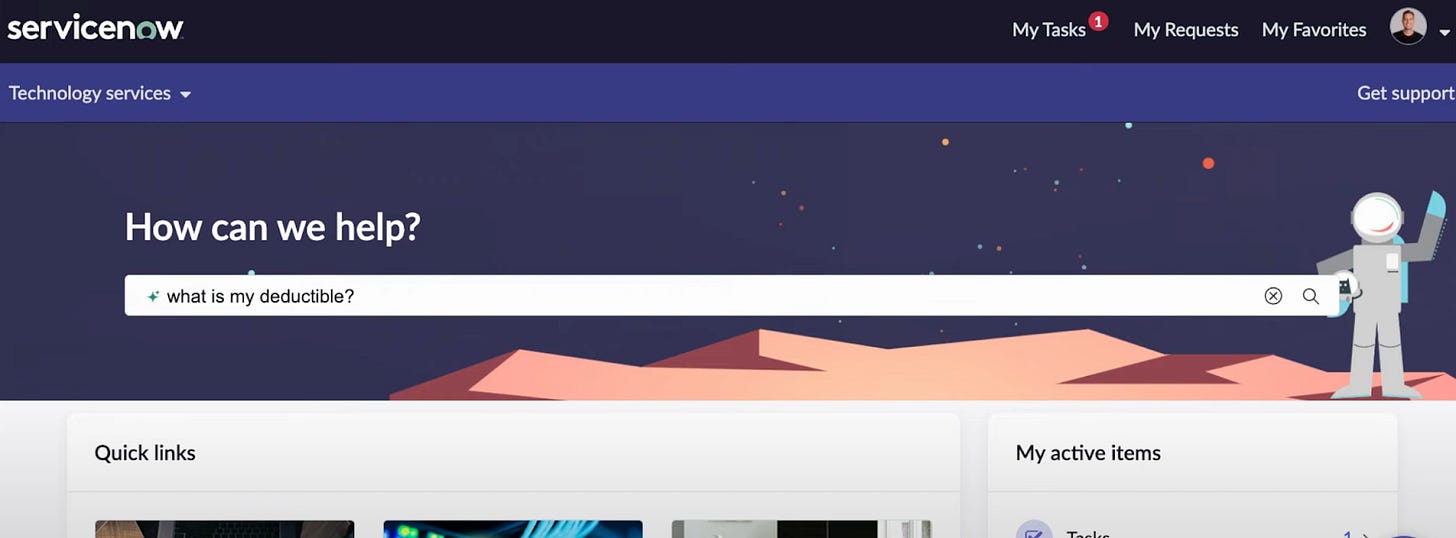



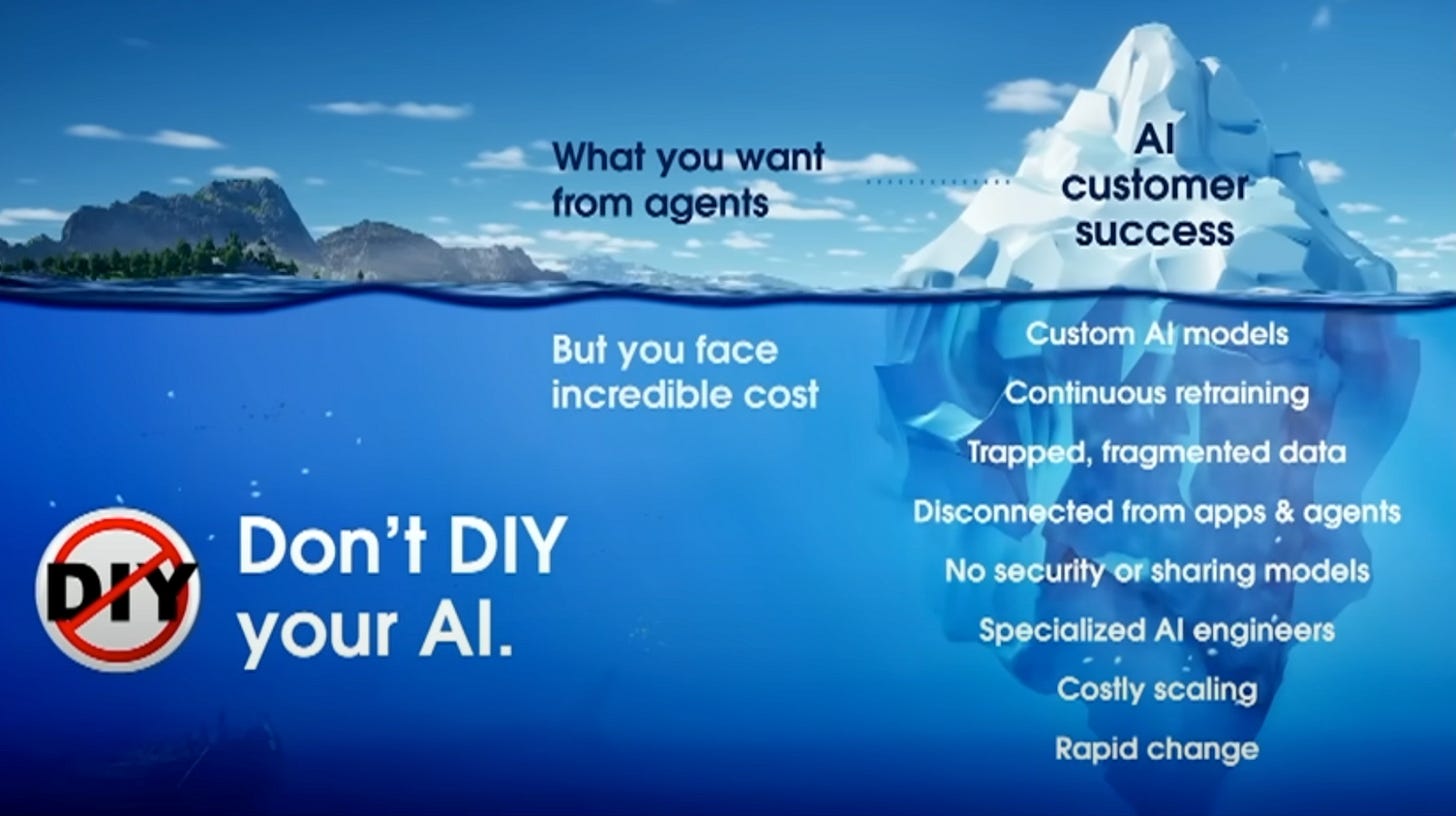
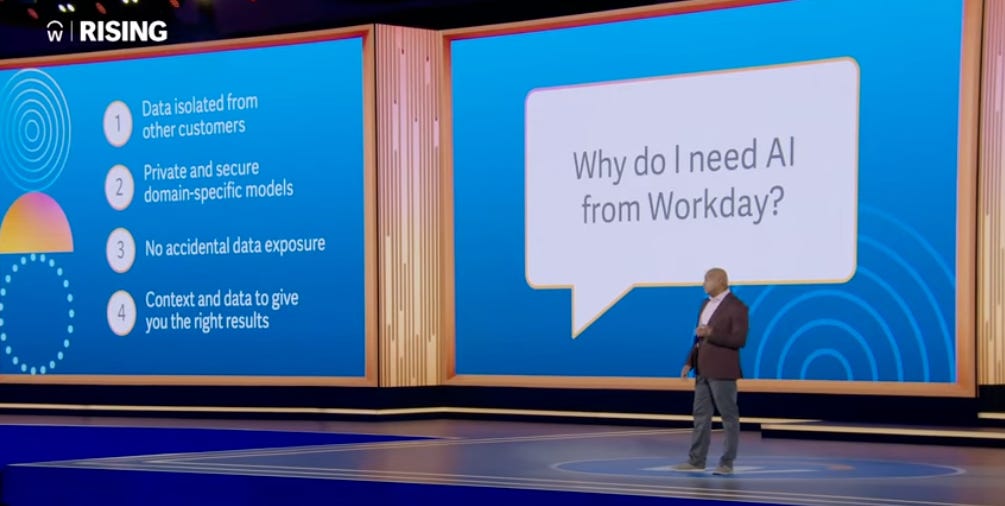
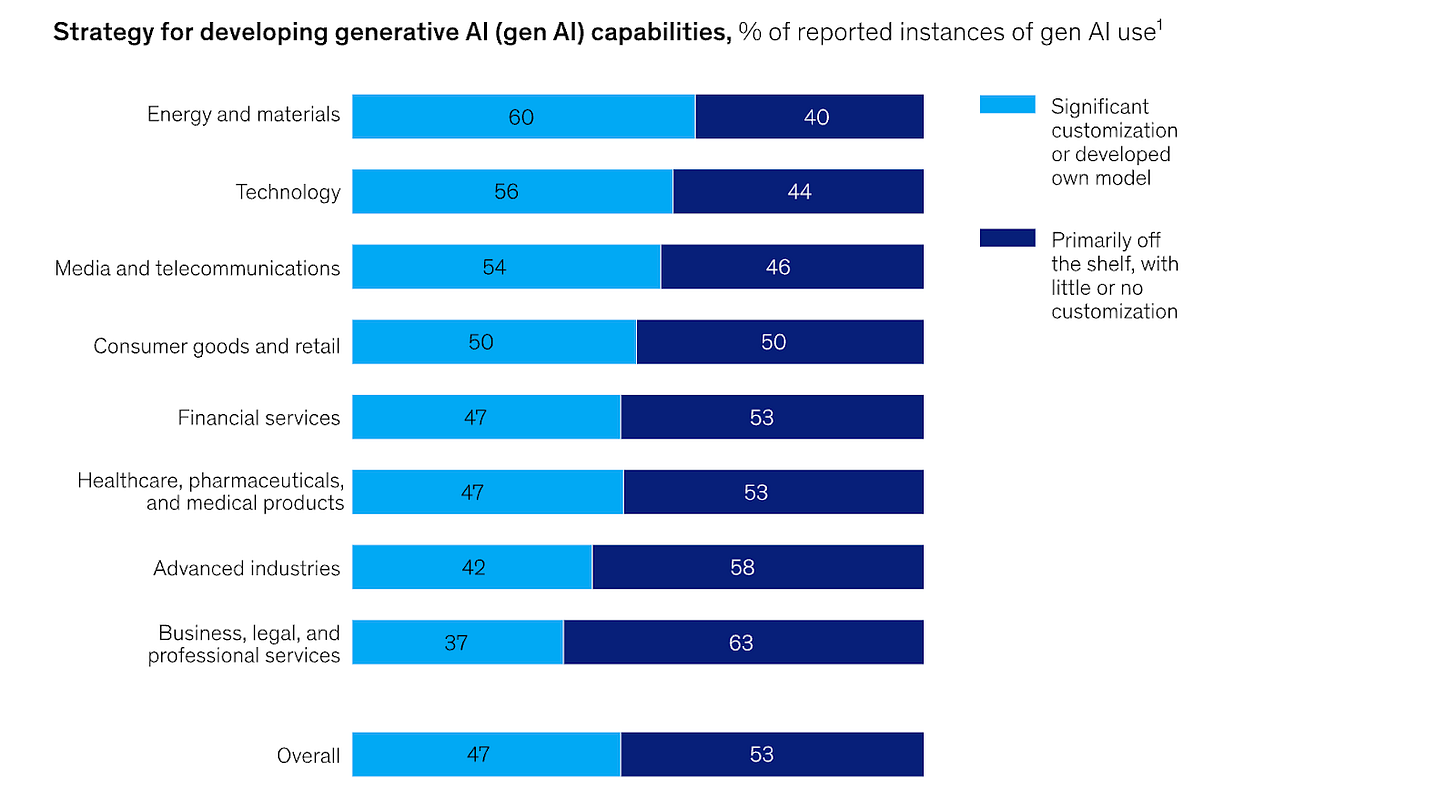
Hi Vidya 👋
Thank you for sharing these take aways. I've observed that businesses who are more conservative from a technical risk perspective have generally been hesitant to put their confidential data in public cloud SaaS. This is probably less of the case for major cloud players like Salesforce, ServiceNow, and Workday and more so the case for B2B Enterprise Startups.
Do you have any advice for B2B startups on how they can pentrate the Enterprise and capitalize on wave of AI agents that are coming and will transform the future of work?
- Corey